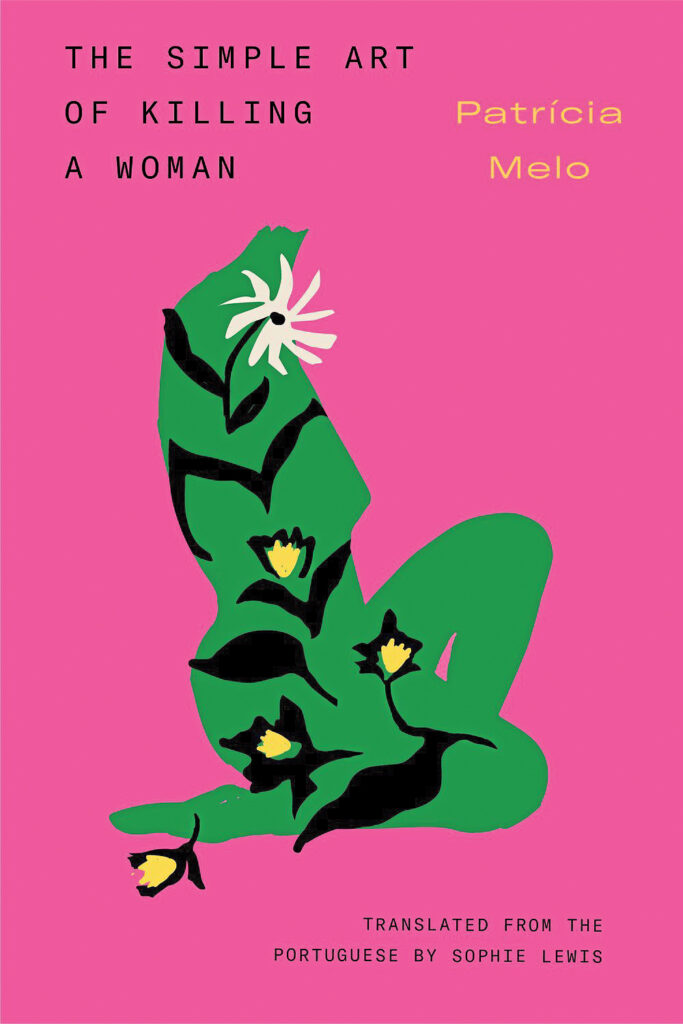This article is adapted from AQ’s special report on Latin America’s election super-cycle
The unnamed attorney at the heart of Patrícia Melo’s novel The Simple Art of Killing a Woman is haunted by one of Latin America’s biggest scourges: gender-based violence.
When her job sends her to Acre, a state in Brazil tucked between the borders of Peru and Bolivia, to document the trials of those accused of killing women, she uses the trip as an opportunity to escape her own suddenly violent boyfriend, and to understand her own history: Her father killed her mother when she was just a young child, an incident she witnessed but cannot remember.
While in Acre, she begins following the case of Txupira, a young Indigenous woman raped and murdered by three young men from leading Acre families. As she befriends the prosecutor in the case, she begins to investigate the collusion and corruption that results in the boys’ acquittals. As more murders begin piling up, she sinks into the rhythms and idiosyncrasies of life on the edge of the Brazilian jungle. Txupira’s case is reflective of Acre as a state—it has one of the largest Indigenous populations anywhere in Brazil, composed of 15 distinct Indigenous groups, including three uncontacted groups.

The Simple Art of Killing a Woman
Patrícia Melo
Translated by Sophie Lewis
Restless Books
Paperback
256 pages
The story of the attorney’s investigation is interspersed with brief interludes, sometimes poetic, sometimes journalistic, dealing with other femicides documented in the narrator’s research. Other passages follow her ayahuasca visions. In these sections, lushly translated by Sophie Lewis, the prose shines as the narrator joins a mystical community of women warriors, almost like the Amazons once imagined to live in the rainforest.
Here, as might be expected, the book tips into magical realism. Vaginas take to the air like vengeful birds, the living and the dead feast together on the ribs and thighs of rapists, mystical women rise out of lakes. The contrast between this liminal dream-like space and the real, often brutal world of Acre suggests that the only place where justice is possible is in the imaginary—in works of fiction like this one, in the dreams of women on the run from violent boyfriends.
Melo uses these dream scenes to point out the intersectional dimension of femicide, the ways that class and race and age affect who gets killed—femicide rates are 67% higher for Black women, for example—and whether the killers face justice. But she occasionally falls into a sort of romanticized, soft-focus view of the Indigenous people of Acre. Whenever the narrator needs to find peace or escape from the violent, dangerous world of the courtroom, she retreats into an Indigenous community, which appears more or less untouched by gender-based violence—except, as in Txupira’s case, when threats come from outside the community. Even though the book candidly depicts violence against Indigenous women, its vision of their communities as peaceful, paradisiacal places at times threatens to gloss over uncomfortable realities.
Melo, an accomplished noir crime novelist and screenwriter, has truly found her subject in The Simple Act of Killing a Woman. Through the lens of gender-based violence she is able to examine the inequity and corruption that undergird and reinforce it in Brazil, the country with the fifth-highest rate of femicide in the world. But the book’s narrator only makes murkier the arguments at the heart of the book. Giving voice to a woman who, based on her class and geographical background, would be most likely to win a case against an abuser; allowing her, even in her dreams, to lead the charge for justice, Melo replicates the structures she attempts to illuminate.
—
Oliva is a writer based in Chicago








